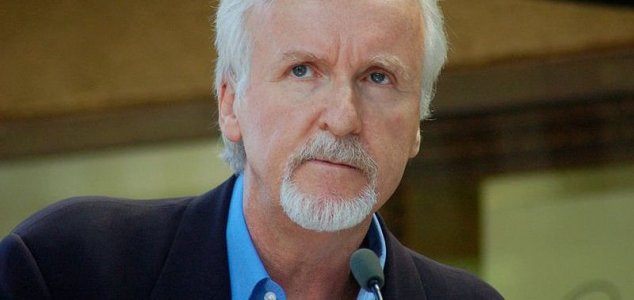
|
|||
James Cameron finds 'evidence of Atlantis' - Unexplained Mysteries
See more at: https://en.wikipedia.org/wiki/Atlantis
The famed movie director has linked the discovery of bronze age anchors to the legend of Atlantis. Famously documented by the Greek philosopher Plato, Atlantis was said to be a continent situated in the middle of the Atlantic that was inhabited by a highly advanced and prosperous civilization. According to legend, the Atlanteans ultimately fell out of favor with the gods and the entire island was submerged beneath the waves. Real-world theories suggest that if Atlantis did exist, it may have been sunk by a tsunami, a sustained period of volcanism or some other ancient disaster. Whether or not Atlantis was a real place however has long remained a matter of heated debate.
"These anchors could be 3,500 to 4,000 years old and establish a harbor in the Atlantic, where I didn't even dare dream to find anchors," said filmmaker Simcha Jacobovici. "It's easier to find a needle in a haystack than Bronze Age anchors in the Atlantic." Whether the anchors really did have something to do with Atlantis however remains unclear. Atlantis is a fictional island mentioned within an allegory on the hubris of nations in Plato's works Timaeus and Critias, where it represents the antagonist naval power that besieges "Ancient Athens", the pseudo-historic embodiment of Plato's ideal state (see The Republic). In the story, Athens repels the Atlantean attack unlike any other nation of the (western) known world, supposedly giving testament to the superiority of Plato's concept of a state. At the end of the story, Atlantis eventually falls out of favor with the gods and submerges into the Atlantic Ocean. Much speculation began as to the origins of the Maya, which led to a variety of narratives and publications that tried to rationalize the discoveries within the context of the Bible and which had undertones of racism in their connections between the Old and New World. The Europeans believed the indigenous people to be inferior and incapable of building that which was now in ruins and by sharing a common history they insinuate that another race must have been responsible. In the middle and late 19th century, several renowned Mesoamerican scholars, starting with Charles Etienne Brasseur de Bourbourg, and including Edward Herbert Thompson and Augustus Le Plongeon, formally proposed that Atlantis was somehow related to Mayan and Aztec culture. The French scholar Brasseur de Bourbourg traveled extensively through Mesoamerica in the mid-1800s, and was renowned for his translations of Mayan texts, most notably the sacred book Popol Vuh, as well as a comprehensive history of the region. However, soon after these publications, Brasseur de Bourbourg lost his academic credibility, due to his claim that the Maya peoples had descended from the Toltecs, who he believed were the surviving population of the racially superior civilization of Atlantis. His work combined with the skillful, romantic illustrations of Jean Frederic Waldeck, which visually alluded to Egypt and other aspects of the Old World, creating an authoritative fantasy and exciting much interest in the connections between worlds. Inspired by Brasseur de Bourbourg's diffusion theories, the pseudoarchaeologist Augustus Le Plongeon traveled to Mesoamerica and performed some of the first excavations of many famous Mayan ruins. Le Plongeon invented narratives, such as the kingdom of Moo saga, which romantically drew connections between himself, his wife Alice, and Egyptian deities Osiris and Isis, as well as with Heinrich Schliemann, who had just discovered the ancient city of Troy from Homer's epic poetry. He also believed that he had found connections between the Greek and Mayan languages, which produced a narrative of the destruction of Atlantis. comments powered by Disqus Submit News/Videos/Links | Discuss article | Article Link | More Unsolved and Unexplained Mysteries |
More can be addded on request. Direct your requests at vinit@theunexplainedmysteries.com
